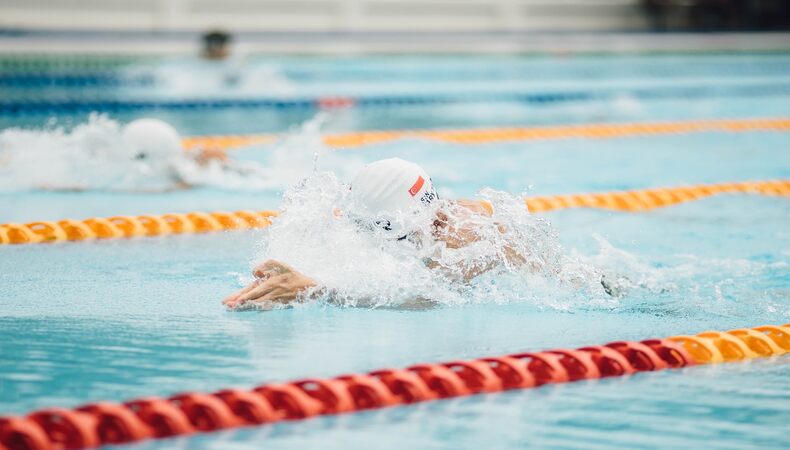Top 10 athletes who won the most prize money at the Paris Olympics

Returning from the Paris Olympic Games, athletes are carrying more than just medals around their necks as they return to their own countries. Some people find great financial motivations in their athletic talent, which goes considerably beyond the podium. These awards show the varied ways that various nations commemorate and reward their Olympic winners; some offer life-changing sums that challenge the most expensive sports contracts.
The Stark Comparisons in Olympic Prize Money World
Among the most striking revelations is the vast variation in how other countries recognize its medalists from the 2024 Olympics. Some nations—including Britain, New Zealand, Sweden, and Norway—have decided not to provide their athletes any financial incentives; others have gone to great lengths to ensure their champions receive a fair compensation. Different national interests, cultural values, and economic capabilities all appear in this variation in incentive systems.
Hong Kong Defines a New Olympic Reward Standard
With an unheard-of HK$6 million (£599,000 or $770,000) for every gold medal won, Hong Kong has emerged as the front runner in providing Olympic contenders. Particularly in fencing, this large sum has pushed Hong Kong’s athletes—especially to the top of the global prize money ranks. Being the top earners from the Paris Games since their prize money surpasses that of their colleagues worldwide, gold medalists in fencing Cheung Ka-long and Vivian Kong Man-wai now enjoy the distinction.
Taiwan and the Philippines Follow Suit with Generous Awards
Not far behind Hong Kong, Taiwan (known as Chinese Taipei) has also shown its sportsmen remarkable hospitality. Ranked among the best earners globally, every gold medallist from Taiwan got NT$20 million (£481,000.). Notable sportsmen include boxing’s Lin Yu-ting and the badminton team Wang Chi-lin and Lee Yang have benefited tremendously from these awards, which reflect Taiwan’s will to appreciate the labor and dedication of its Olympic representatives.
The Philippines has also made news for its outstanding awards. Carlos Yulo, a multiple medal-winning gymnast, made £355,000 ($351, 358) with his efforts, the highest prize money earner among rivals who brought more than one medal from the Paris Games. An additional six million Philippine pesos (£82,000) provided by the House of Representatives permitted Yulo’s salary to be even more boosted, therefore reflecting the pride and support he has earned in his own nation.
A closer perspective of the top 10 prize money earners globally
The global prize money leaderboard for the 2024 Olympics strikingly displays the financial incentives given to rivals from all around the world. The following is a detailed analysis:
One Hong Kong Fencing Cheung Ka-long valued £599,000 ($777,000).
2. Vivian Kong Man-wai (Hong Kong) £599,000 ($772,000). Fencing.
3. Lin Yu-ting (Chinese Taipei, Taiwan) Boxing: £681,000 ($619,000)
4. Wang Chi-lin (Chinese Taipei / Taiwan) Badminton: (£484,000 ($619,000).
5. Lee Yang (Chinese Taipei, Taiwan) £481,000 ($619,000) for badminton
Carlos Yulo, from the Philippines, is number six. Gymnastics:£355,000 ($351,358).
7. From Iran, Saeid Esmaeili Leivesi Wrestling: £332,000 ($424,000).
8. Arian Salimi ( Iran ) Taekwondo: £332,000 ($428,000).
9. Saravi Mohammadi (Iran) Wrestling: £332,000 ($428, 000).
10. Leon Marchand ( France ) Swimming: £351,000 ($374,000).
These figures highlight not just the enormous financial gains some athletes received but also the various degrees of support their particular countries and teams provided.
Notable Prize Money Recipients and Honorous Mentions
Apart from the elite athletes, countless other sportsmen have been well compensated for their Olympic achievements. With many gold, French swimmer Leon Marchand ranked sixth in the world prize money standings assured £291,000 ($374,000) for his efforts. Marchand’s performance is proof of France’s will to grow and respect its sports stars, particularly in front of major events like the Olympics.
With Lasha Bekauri, Geno Petriashvili, and Lasha Talakhadze—each earning over £289,000 ($371,793—Georgia also performed rather well. This significant amount reflects Georgia’s pride in its sportsmen and its goal to motivate following generations to follow sporting success.
Also performing well were Indonesian athletes; weightlifter Rizki Juniansyah and climber Veddriq Leonardo hauled up £248,000 ($318,000) for their gold medals. This big award ranks Indonesia among the top earners globally and indicates its increasing spending in its athletic activities.
Among top earners were Hungarian canoeist Tamara Csipes, who won two silver medals and a bronze. Csipes received £240,000 ($308,000), for her achievements, which underlines Hungary’s commitment to pay its Olympic rivals properly. The Hungarian government gave £85,000 for each silver medal and £70,000 for each bronze to ensure competitors such as Csipes received just compensation for their work.
Also Read: https://thearabposts.com/who-declares-mpox-outbreak-a-global-public-health-emergency-again/
Universal Recognition and Reward: A Complex Terrain
The methods countries recognize their Olympic athletes mirror cultural values and goals as much as economic capability. While some nations, like Great Britain, emphasis the prestige and reputation of competing on the world scale as the ultimate prize, others, such Hong Kong and Taiwan, regard financial incentives as extremely necessary in encouraging and rewarding its athletes.
Whether symbolic or pecuniary, these athletes’ returns to their own nations draw attention to the several ways nations celebrate and support their sports stars. The financial gift will be transformational for some, enabling them to invest in their futures and start their sports careers under more stability. Some people still value their pleasure of representing their country at the Olympics and the gratitude they get from their fellow citizens above all else.
Ultimately, the 2024 Olympics have underscored once more the global nature of sports and the several ways of assessing and rewarding success. Using either major prize money or national pride, these athletes have made their imprint in history and will motivate upcoming generations all around.




